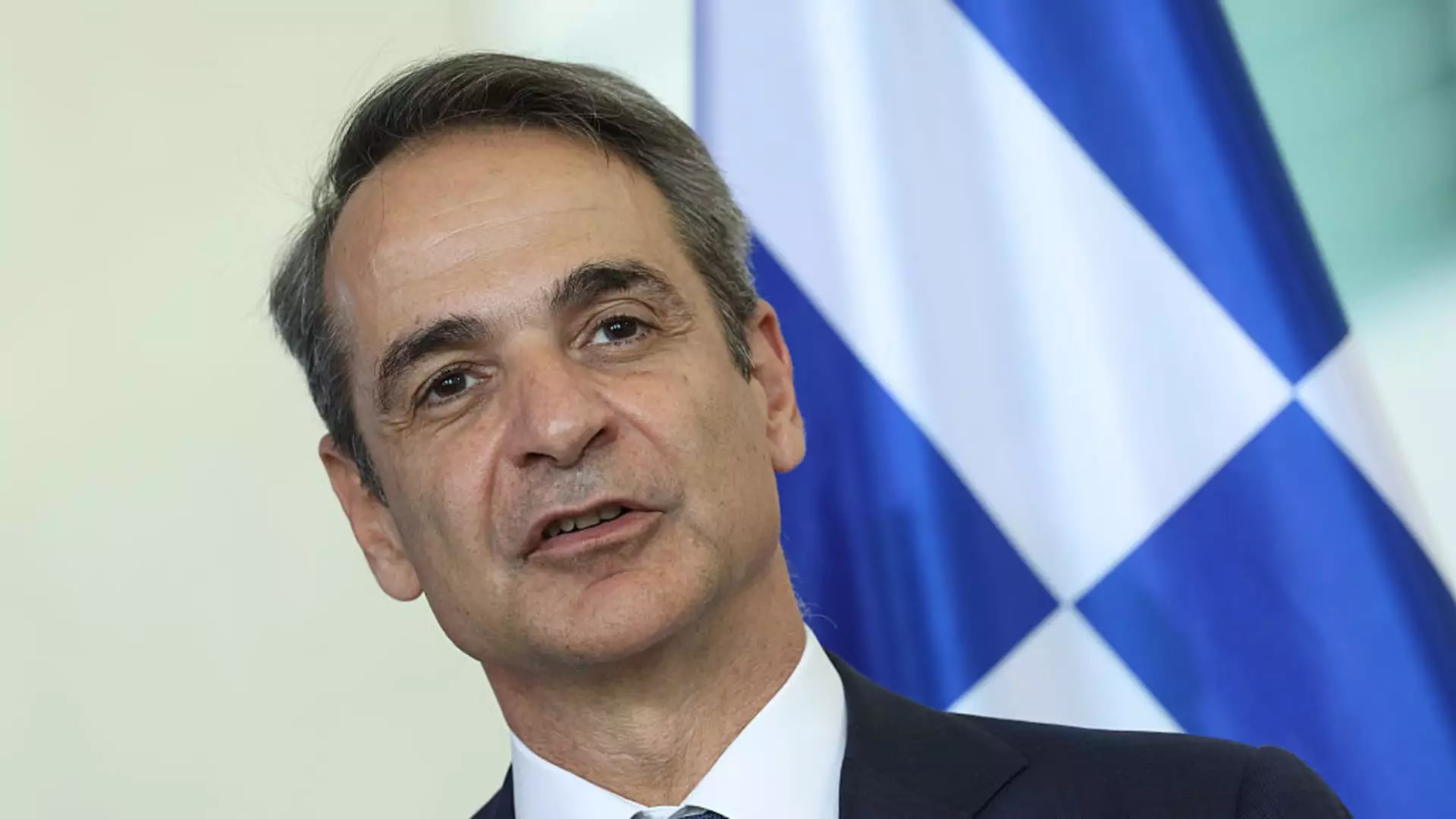In a world where the geopolitical landscape shifts like quicksand, the notion that NATO members can simply rise to meet U.S. President Donald Trump’s ambitious defense spending demands of 5% of GDP appears not only impractical but somewhat delusional. Greece’s Prime Minister Kyriakos Mitsotakis recently articulated a sentiment that resonates across many NATO allies: this goal is a bridge too far. His assertion that “5% frankly, is very, very difficult” underscores a harsh reality—European economies, still recovering from recent financial turmoil, cannot feasibly allocate such a staggering percentage of their resources toward military expenditures without sacrificing essential services and growth.
The nervous laughter of European leaders in response to Trump’s call for higher defense budgets is indicative of a broader concern. Many nations are already struggling to meet the existing NATO guideline of 2%. The Prime Minister’s critique invites us to scrutinize the feasibility of a defense budget that hovers around 3.5%—which he marks as the practical ceiling—yet still maintains hopes for the 5% target as a long-term aspiration contingent on what constitutes “defense” spending. This ambiguity raises numerous questions regarding what NATO nations are willing and able to prioritize.
The Mitigating Factors in Defense Spending
The complexity of defense expenditures transcends mere math. Nations frame their budgets within broader security parameters that encompass not just military might, but infrastructure, intelligence, and disaster management aspects. Mitsotakis tangentially touches on this by suggesting that umbrella definitions of spending are essential for making sense of these financial commitments. By broadening the definition of defense spending, nations could potentially juggle their budgets more effectively.
Moreover, the issue of equity among allies remains relevant; some countries can afford to spend more on defense because they have stronger economies. For example, U.S. defense spending hovers at approximately 3.4% of GDP—a level unattainable by most NATO partners. In a world of global interdependence, it’s crucial to recognize that burden-sharing must also reflect economic realities. Thus, the disparity in GDP and defense expenditures creates a chasm that cannot simply be bridged by demanding enhanced spending.
The Role of European Fiscal Constraints
Another layer complicating this discussion is the stringent fiscal regulations confined by the European Union. For years, these guidelines have acted as financial shackles, constraining nations like Greece—whose defense spending is already above the NATO target—yet hampering their ability to respond with agility to new threats. Mitsotakis has pushed for reforms allowing for increased flexibility in military spending, affirming that “we cannot free ride.” This awareness of the calculated necessity of defense expenditure reflects a maturing perspective on European security.
The European Commission’s move towards easing these fiscal constraints is a welcome shift but remains riddled with challenges. Security cannot simply be an airy concept floating above rigid financial rules; it requires tangible resources and support. The discussion should not only dwell on mandates but also on crafting realistic policies that bolster financial viability for all member nations.
The Persistent Threat from the East
The intensifying diplomatic and military tensions with Turkey further emphasizes the urgency for nations like Greece to maintain robust defense capabilities. With a regional adversary probing the boundaries of maritime rights and territorial integrity, underfunding defense initiatives becomes a perilous gamble. It’s essential to recognize that while expanding budgets may provoke unease among fiscal hawks, they are often a necessary corollary to geopolitical realities.
Mitsotakis’ acknowledgment that Greece’s defense spending is driven by concrete threats rather than abstract demands speaks to a broader narrative; nations must prioritize pragmatism without succumbing to increased pressure from larger allies. The path ahead requires a thoughtful approach to ensure balanced contributions to NATO while also addressing national concerns and limitations.
In this crucial juncture, rather than following unfounded demands blindly, NATO members should engage in a rationale dialogue that honors both collective security aspirations and the unique economic landscapes of individual nations. If the Alliance wishes to fortify its foundations, a renewed commitment based on respect, equity, and authenticity is essential.


Leave a Reply